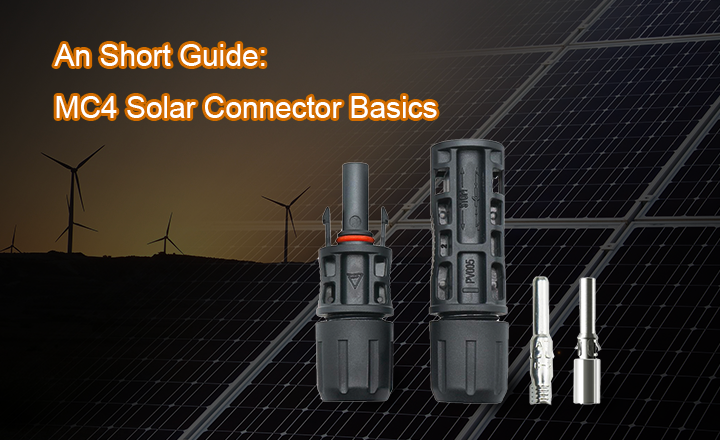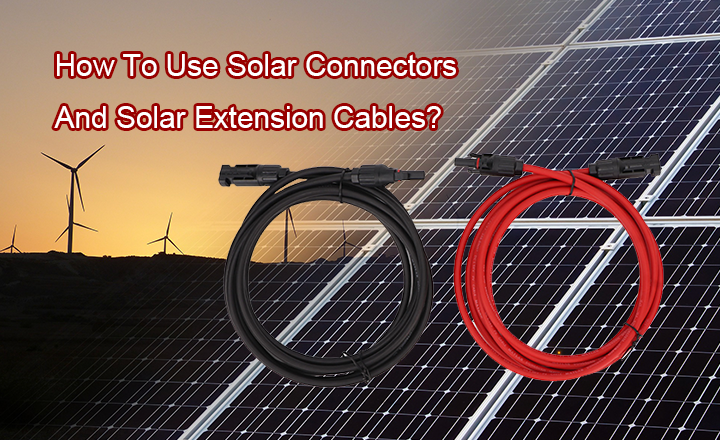News
A Short Guide: MC4 Solar Connector Basics

Introduction to MC4 Solar Connectors
When it comes to solar panel installations, ensuring secure and efficient electrical connections is crucial. One of the most widely used components in photovoltaic (PV) systems is the MC4 solar connector. These connectors are designed for quick, reliable, and weatherproof connections between solar panels, inverters, and other system components.
In this guide, we’ll explore:
- What MC4 connectors are and why they’re important
- Key features and benefits
- Different types of MC4 connectors
- Proper installation and safety tips
- Common troubleshooting issues
Whether you’re a solar installer, DIY enthusiast, or just curious about solar technology, this guide will help you understand the basics of MC4 connectors.
What Are MC4 Solar Connectors?
MC4 stands for “Multi-Contact 4mm”, referring to the 4mm diameter metal contact pin inside the connector. These connectors were developed by Multi-Contact (now part of Stäubli Electrical Connectors) and have become the industry standard for solar panel wiring due to their:
- High current capacity (typically up to 30A)
- Weatherproof and UV-resistant design
- Easy plug-and-play installation
- Secure locking mechanism to prevent accidental disconnections
MC4 connectors are used in both residential and commercial solar installations, ensuring safe and efficient power transmission.
Key Features & Benefits of MC4 Connectors
1. Weatherproof & Durable
MC4 connectors are designed to withstand harsh environmental conditions, including:
- Rain, snow, and moisture (IP67-rated for waterproofing)
- UV radiation resistance (preventing degradation from sunlight exposure)
- Extreme temperatures (-40°C to +90°C / -40°F to +194°F)
2. High Electrical Efficiency
- Low contact resistance ensures minimal power loss.
- Rated for up to 1000V or 1500V DC and 30A, making them suitable for most solar applications.
3. Secure Locking Mechanism
- A snap-in locking system prevents accidental disconnections due to wind or movement.
- Requires a special MC4 unlocking tool for disassembly, enhancing safety.
4. Easy Installation & Compatibility
- “Plug-and-play” design allows for quick connections without soldering.
- Compatible with most solar panels, inverters, and charge controllers.
Types of MC4 Connectors
MC4 connectors come in different configurations to suit various wiring needs:
1. Male vs. Female MC4 Connectors
- Male MC4 (Pin Connector) – Has a metal pin inside and is typically used on the positive (+) cable.
- Female MC4 (Socket Connector) – Has a metal sleeve and is usually used on the negative (-) cable.
2. MC4 Branch Connectors (Y-Splitters)
- Allows parallel connections between multiple solar panels.
- Common in off-grid and RV solar systems.
3. MC4 Extension Cables
- Used to extend the distance between solar panels and inverters.
- Available in various lengths (1m to 10m+).
4. MC4 In-Line Fuses
- Provides overcurrent protection for solar arrays.
- Essential for systems with multiple panels to prevent electrical fires.
How to Install MC4 Connectors
Step 1: Gather Tools & Materials
- MC4 connectors (male & female)
- Solar cable (4mm² or 6mm²)
- MC4 crimping tool
- Wire strippers
- Multimeter (for testing)
Step 2: Strip the Cable
- Strip about 2.5-10mm of insulation from the solar cable.
Step 3: Crimp the Metal Contact
- Insert the stripped wire into the metal contact pin/sleeve.
- Use an MC4 crimping tool to secure it tightly.
Step 4: Assemble the Connector Housing
- Slide the rubber seal and housing over the crimped contact.
- Snap the housing shut until it clicks.
Step 5: Test the Connection
- Use a multimeter to check for continuity and proper voltage.
Common MC4 Connector Issues & Troubleshooting
1. Loose Connections
- Problem: Poor contact leads to power loss or overheating.
- Solution: Ensure proper crimping and fully lock the connectors.
2. Corrosion or Moisture Inside
- Problem: Water ingress causes oxidation and resistance.
- Solution: Use IP67-rated MC4 connectors and check seals regularly.
3. Difficulty Disconnecting
- Problem: Connectors get stuck due to dirt or overtightening.
- Solution: Use an MC4 unlocking tool and clean connectors.
4. Mismatched Connectors
- Problem: Using non-MC4 or counterfeit connectors can cause failures.
- Solution: Always buy certified MC4 connectors from reputable brands.
Conclusion: Why MC4 Connectors Are Essential for Solar Systems
MC4 connectors play a vital role in solar energy systems by ensuring safe, efficient, and reliableelectrical connections. Their weatherproof design, high current capacity, and easy installationmake them the top choice for solar professionals and DIY installers alike.
By following proper installation techniques and maintenance practices, you can maximize the performance and lifespan of your solar PV system.
Need MC4 Connectors for Your Solar Project?
Check out our selection of high-quality MC4 connectors, tools, and accessories to ensure a seamless solar installation.
